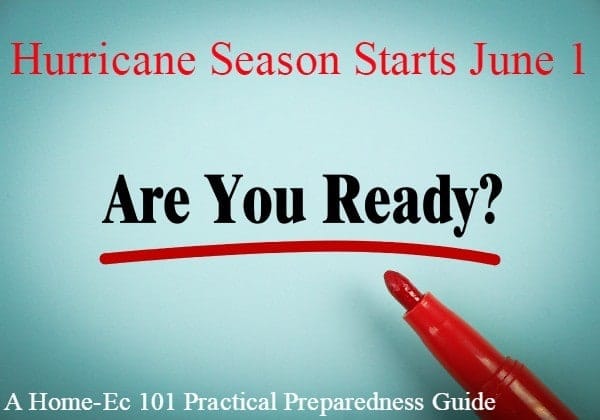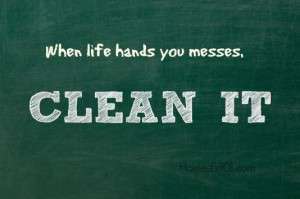June 1st marks the beginning of hurricane season. For those of us on the East and Gulf Coasts, we know this means anxious meteorologists glorifying every thunderstorm that appears in the oceans. Although the public tends to become jaded with media saturation, there is no reason to get caught with your pants down.
Hurricane Hugo was the landmark event of Heather and Lisa’s childhood. Thankfully their families made it through safely with relatively little damage. They remember not only the storm but the camaraderie that developed during the clean-up. Everyone in their neighborhoods pitched in, adults cleared downed trees and grilled defrosting meals. Older kids babysat and entertained the younger ones so the adults could work unhindered. Heather was only eleven and Lisa fifteen, so their memories consist mostly of the awesome forts we were able to build with scavenged materials. I was too young to understand what a nightmare filing for damages or dealing with FEMA could be.

Hurricane 101
Here are some tips to be sure you and your family are safe should a storm make landfall. (Many of these apply to those living near fault lines or in tornado country who don’t have the benefit of prior warning.)
- Check your insurance coverage. Do you have adequate protection from both wind and water? Are they with the same or competing companies? Keep these documents in a safe, dry place, and remember to bring them along if you must evacuate.
- Have enough food and clean water for each family member to last at least 72 hours.
- One gallon of water per person per day.
- As long as the water is still flowing, it can be used after boiling.
- 2 drops of unscented chlorine bleach purify one quart of water. This is the last resort if boiling is not an option. Let any particles settle out, filter using coffee filters, paper towels, or a cloth, then add the bleach, stir or shake well, and allow to sit for 30 minutes. Your bleach must be at full strength, be sure to have a new, unopened bottle in your kit, and rotate for a new one every three months.
- Food should be ready to eat or only require minimal preparation. Please don’t forget to have a manual can opener on hand. You may end up the most popular person on your block.
- Candles, batteries, flashlights, and a crank radio or battery-operated radio are a must.
- Keep your gas tank filled at least halfway at all times.
- Keep an emergency cash supply on hand, as ATMs do not work without power.
- Have an evacuation plan. Shelters are only for those in dire need, those with nowhere else to go.
- Take identification and proof of residency with you. If an area is badly damaged, law enforcement will restrict access to people trying to return.
- Have a plan for Fido and Fluffy as well. Most shelters do not take pets. Know what you are going to do before a warning has been announced. As a pet owner, this is an important responsibility that is frequently overlooked.
- Have a well-stocked first-aid kit.
- If you must leave, keep all prescription medications filled and take them with you. (I know insurance companies make this a nightmare, I’m sorry)
- Have sturdy work gloves. Keep an extra pair with your emergency kit.
- Have sturdy shoes, you don’t need to be nailing a tarp to your roof in flip-flops.
- Except for emergencies, stay put after a storm. Emergency personnel have enough to deal with: restoring utilities and rescuing those who were injured in the storm. Don’t add to their workload.
- Curfews may be established. Obey all law enforcement personnel. People under severe stress may act erratically.
- Check on your neighbors, especially the elderly.
- Remember, snakes and other wildlife may become disoriented after a storm. Watch where you step and never put your hands where you cannot see when removing storm debris.
- If you live in a rural area, learn how to operate a chainsaw safely. This goes for you ladies, too. Downed limbs are pretty much a given. STAY AWAY from power lines.
- Own one, keep it in good condition and have gasoline, oil, and chain oil on hand.
- Have plenty of propane or charcoal for your grill.
- Heather brewed coffee using a grill in the past. The neighbors loved her for it.
- NEVER use a grill indoors. The flames produce deadly, odorless carbon monoxide.
- If you have to board your windows, ensure you already have the plywood. It can be reused each year.
- Have a couple of tarps ready, they can be used to temporarily cover a broken window or a hole in the roof until more permanent repairs can be made.
- Remember, cell towers may be damaged in a strong storm and communication may be spotty or non-existent for a while.
And finally, if you’re watching a storm with the potential to become a threat and you’re not in an evacuation zone, it’s time to check and make sure everything is ready.
Go ahead and get the laundry caught up, find the cooler, check the generator —if you have one— and swap the stored gasoline if you have/need that. Make ice if your freezer isn’t full. Use every plastic container you have. Ziploc bags work, too. Just be sure to lay them flat and to zip the zips fully.
A full freezer will stay at temperature for 48 hours, only 24 if it’s only half full.
If the kids have electronics, go ahead and make sure they are fully charged and then be ready to ration their use.
If a storm does look like it will hit, let the people who haven’t thought ahead deal with each other in those last few hours. You’re ready; stay home, safe and dry, and make your own version of Harriet McLeod’s Go Away Cookies.
And while the drama is what the media plays on, remember it’s the little, preventable accidents that are most common.
Here is hoping for a quiet season!
Send your domestic questions to helpme@home-ec101.com.
![]()




I grew up in the east, and I remember Hugo too. That and Hurricane Juan in ’85 – both were doozies where we lived. Good luck, and here’s hoping that you miss everything that this season has to dish out.
I am fortunate with where I live that it would require the wiping out of entire cities before it would even begin to flood in my neighborhood. But we are still prepared.
The one that worries me the most is the insurance. If we learned nothing else from Katrina, it is that insurance companies will do and screw over anybody to avoid paying out premiums.
Great gudie. As a Katrina survivor, I can atest to the importance of being prepared.
In ’92 Andrew was bearing down on Florida. They thought it was going to hit Fort Myers (where I live). Don’t you know I was pregnant and in premature labor. Sheesh. We also went thru Charley (scary, but a side swipe), and Wilma the next year. We lost power for 8 days with Charley. I have never been so hot ever. Here’s hoping for a uneventful season.
Thanks for posting this, it’s time to get the kits together.
These are GREAT tips! I would never have thought of the work gloves…that is definitely getting added to my list.